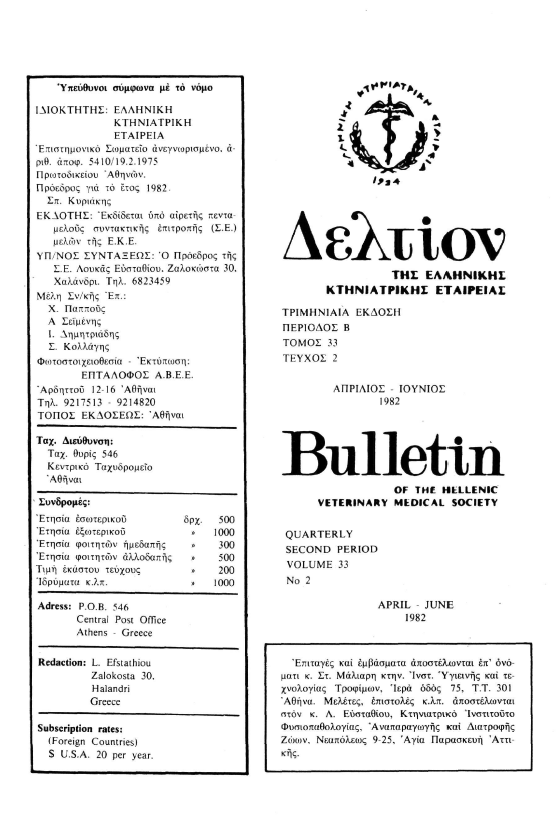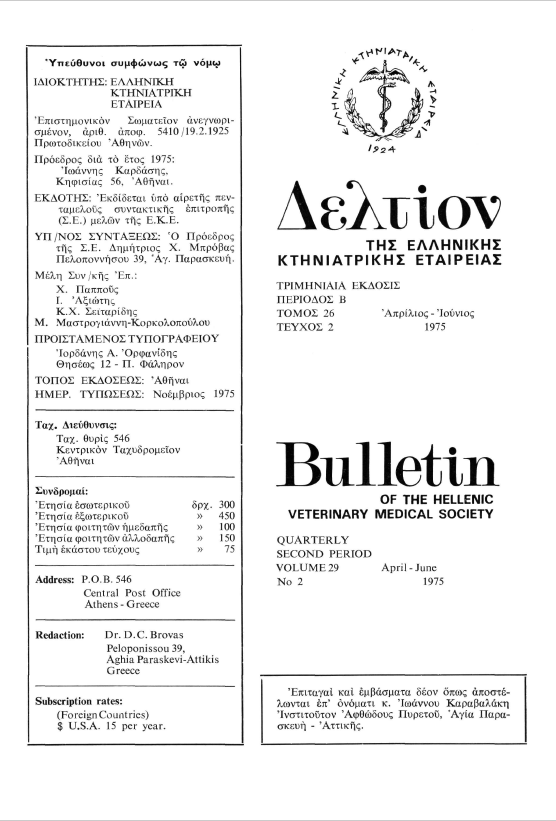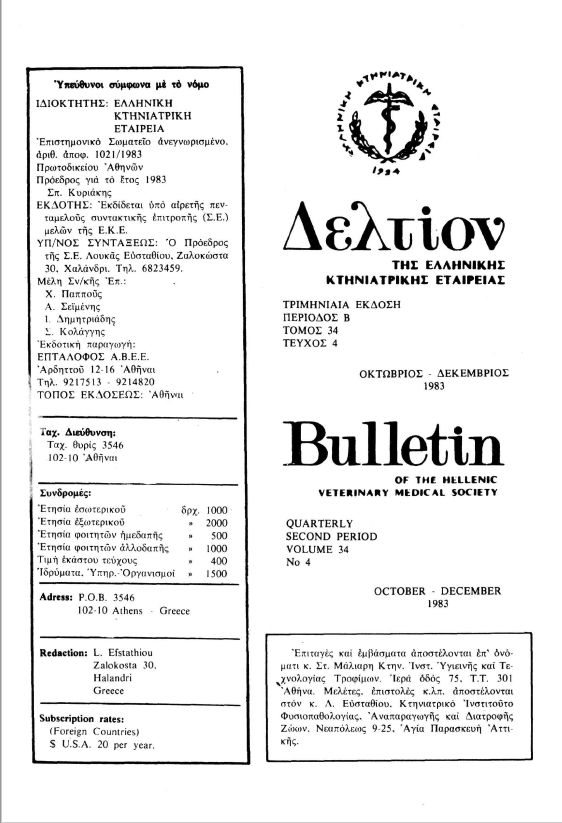Possibility of controling sheep's and coat's milk pasteurization by alkalive phosphatase test
Abstract
The alkaline phosphatase activity of cow's, sheep's and goat's milk was studied. For this, 62 milk samples taken during the lactation period were examined. It was found that phosphatase activity of cow's milk ranged from 1872 to 4740 μg phenol/ml average 3536, that of sheep's milk from 8301 to 17280 average 12445 and that of goat's milk from 228 to 636 average 455. The effect of different temperatures on the phosphatase activity of the three kinds of milk was also examined. The cow's milk phosphatase was found more resistant than the others. Sheep's and goat's milk phosphatase showed similar sensitivity but they gave different results when examined by the routine alkaline phosphatase test. It was found that this test can be used for the control of the pasteurization of sheep's milk as well as in cow's milk but not for the goat's milk.
Article Details
- How to Cite
-
ΠΑΥΛΟΥ Ρ., & ΑΝΥΦΑΝΤΑΚΗΣ Ε. (2019). Possibility of controling sheep’s and coat’s milk pasteurization by alkalive phosphatase test. Journal of the Hellenic Veterinary Medical Society, 33(2), 146–151. https://doi.org/10.12681/jhvms.21533
- Issue
- Vol. 33 No. 2 (1982)
- Section
- Articles

This work is licensed under a Creative Commons Attribution-NonCommercial 4.0 International License.
Authors who publish with this journal agree to the following terms:
· Authors retain copyright and grant the journal right of first publication with the work simultaneously licensed under a Creative Commons Attribution Non-Commercial License that allows others to share the work with an acknowledgement of the work's authorship and initial publication in this journal.
· Authors are able to enter into separate, additional contractual arrangements for the non-exclusive distribution of the journal's published version of the work (e.g. post it to an institutional repository or publish it in a book), with an acknowledgement of its initial publication in this journal.
· Authors are permitted and encouraged to post their work online (preferably in institutional repositories or on their website) prior to and during the submission process, as it can lead to productive exchanges, as well as earlier and greater citation of published work.





